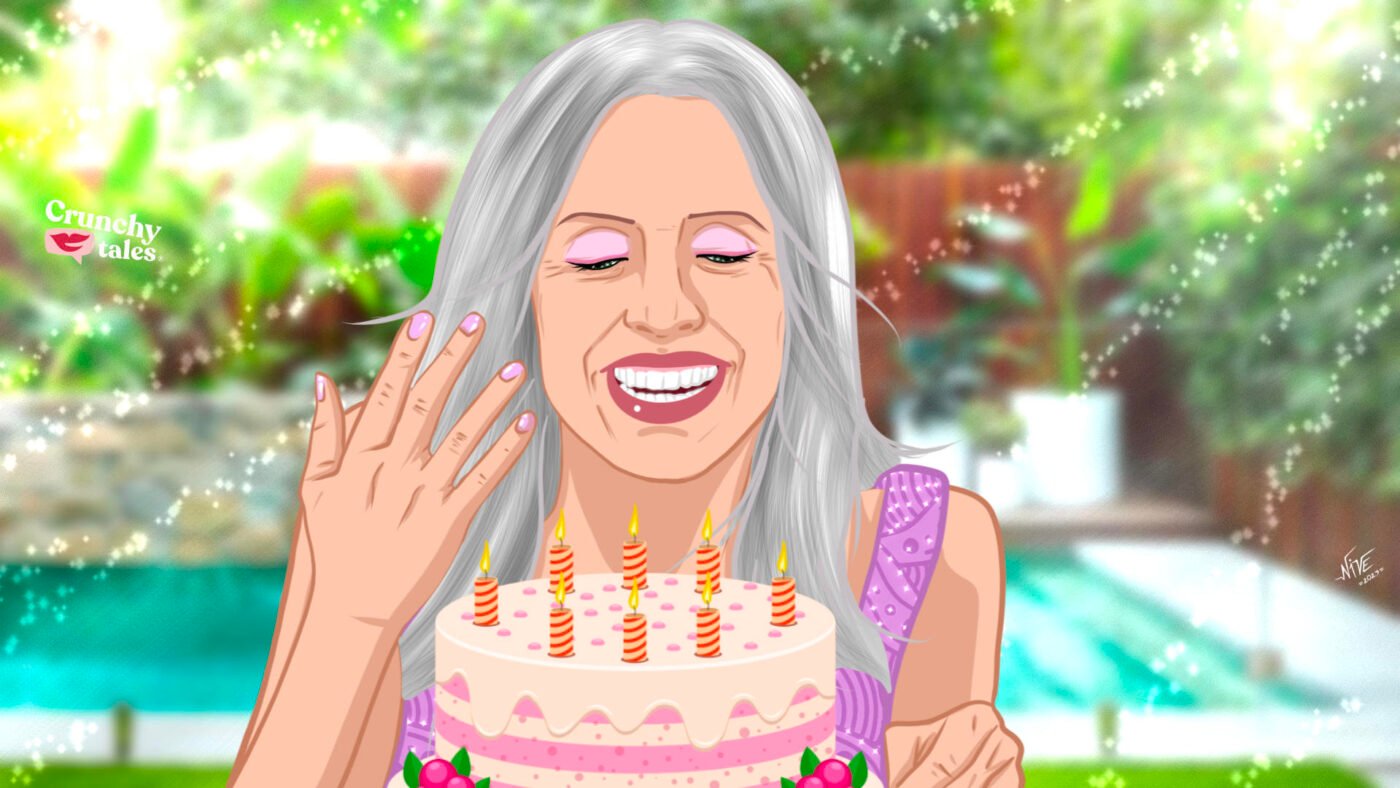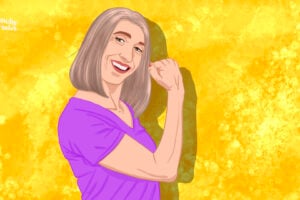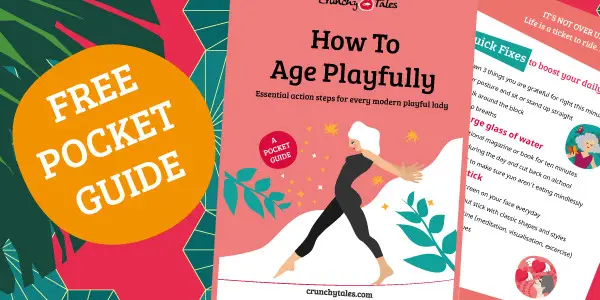Why We’re All Sick Of The Term Aging Successfully
Do you want to age gracefully? Who wouldn’t? Julianne Moore for one. The 62-year-old actor recently stated that she considers the term — a sister of “aging well” and “aging successfully” — to be sexist because it’s mostly directed at women. A woman who is “aging gracefully” is one who looks younger than her age, the only kind of old woman that society seems to find acceptable.
“There’s so much judgment inherent in the term aging gracefully. Is there an ungraceful way to age?” Moore asks. “We don’t have an option of course. No one has an option about aging, so it’s not a positive or a negative thing, it just is.”
We’ve been aging since the moment we were born and if we’re lucky, we continue to age all the way into old age. Babies, children, and teens age yet we don’t talk about them aging gracefully.
We don’t have a successful middle age either, says the late Martha Holstein, one of America’s foremost scholars on feminist gerontology. “Successful aging is a concept that says there’s a bad way to age, and there’s a good way to age. So I don’t want any adjective except to recognize that being old is as diverse and as interesting or boring as any age.”
It is true that there’s no ungraceful or unsuccessful way to grow old. If you’re alive, you’re basically aging, right? Still, when I first heard the term aging successfully, I didn’t think negatively about it. I just thought it meant staying as healthy as you can for as long as you can, which makes sense. And I was trying to. I didn’t plan to have crappy eyesight but that’s genetics — hey, thanks Mom! — or become arthritic, but I’m pretty sure I didn’t have much say in that.
As it turns out, I was wrong about what aging successfully is, at least how the experts define it.
The problem with aging successfully
Although the concept was introduced in the 1960s by Robert J. Havighurst, an expert on human development and aging who posited that aging can be a positive thing, it really took off in 1998 with the publication of “Successful Aging,” by Dr John W. Rowe and psychologist Robert L. Kahn, based on the results of the MacArthur Foundation Study of Aging in America.
Aging successfully, they said, came with a few mandates — avoiding disease and disability at all costs, staying mentally and physically fit, engaging in all life has to offer, and being a productive member of society.
On the surface aging successfully sounds great. But what happens if you develop disabilities as you age, as many people do, or are born with them? What if you were never physically fit, perhaps because of health issues or a lack of access to quality health care, and so may be unlikely to suddenly become fit in midlife? What if you would like to be a productive member of society, but caregiving responsibilities prevent you from remaining in the workplace or volunteering — especially since caregiving, while essential, is often undervalued in society? And who could have predicted a global pandemic that may have caused you to develop long COVID? Would you have any hope of aging well?
The worst part of Rowe and Kahn’s concept of successful aging is that the good doctors put it all in our hands. It’s our fault if we don’t age well, they seem to be saying, as if government policies and the various inequities that created ageism in the first place have absolutely nothing to do with our actual experience of aging.
Women and aging
While the concept of aging successfully impacts both men and women with its classist, ableist, and let’s admit it, downright shaming messaging, it impacts women more, as Moore observes, because it perpetuates gender stereotypes that emphasize beauty and youth, both of which are impossible to hold onto.
But many women try.
As women age, they feel a lot of pressure to be beautiful and stay fit for as long as possible in order to look anything but their age, often at great financial, physical, and emotional cost. It’s a lifelong project that takes more and more work as women age. While some women at midlife experience a shift in how they think about their bodies, focusing a little less on what it looks like and a little more on the fact that they blessedly have a body that still works, they still live in a culture that doesn’t place the same kind of value on a functioning body over a youthful one.
Women in their 50s, 60s and older are acutely aware of how their bodies “should” look, so it’s understandable why some may begin (or continue) to feel bad about them. And that leads to depression and other types of psychological distress, research indicates.
Aging successfully is all about sexualizing a woman’s body
“The question of how successfully a woman conforms to traditional, heterosexual norms of femininity — is she physically attractive? sexually desirable? reproductively viable? — remains an influential measure, albeit not the only measure, of a woman’s individual and social value in contemporary American culture,” says Abigail T. Brooks, director of the Women’s Studies Program and assistant professor of sociology at Providence College.
How can a woman age successfully if she looks her age, no matter how healthy she is? She can’t. So, it seems that women are aged more by cultural narratives about them than by actually aging. And if you’re not a cisgender, heterosexual, abled White woman, the idea of aging successfully is often more unattainable.
Maybe instead of talking about “aging successfully,” “aging well,” or “aging gracefully,” as they’re currently defined, we need a new way to think and talk about aging, one in which such things as disability and death lose their stigma and are embraced as part of the human experience.
How about aging as best we can on our own terms?
Indeed, many old adults’ view of aging well doesn’t fit the experts’ narrow definition, according to a review of existing research by social workers Barbra Teater and Jill M. Chonody. Having a rich social life, a positive attitude, and a good death were just as important, many say.
Like many other adults at midlife and beyond, Moore says the way we talk about aging should be more about inner growth rather than what we look like. “How do we continue to challenge ourselves, to interest ourselves, learn new things, be more helpful to other people, be the person that your friends and family need or want? How do we continue to evolve? How do we navigate life to have even deeper experiences? That’s what aging should be about,” she explains.
There’s a lot of value in what she says. I don’t want to age successfully, well, or graciously as those terms are currently defined. But I’d sure like to age as best I can on my own terms. What about you?
![]()
Vicki Larson is the author of “Not Too Old for That: How Women Are Changing the Story of Aging” (Rowman & Littlefield) out now https://www.amazon.com/Not-Too-Old-That-Changing/dp/1538155613
In Not Too Old for That, Vicki Larson helps change the narrative about being a woman at midlife and older. She questions what we’ve been told aging would be like and encourages us to instead ask ourselves, what do we want it to be like, and how can we get there? The key is to be curious, open-minded, and intentional about the ways we are becoming our future selves
Like this post? Support Us or Sign up to our newsletter to get more articles like this delivered straight to your inbox!






